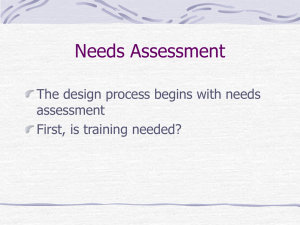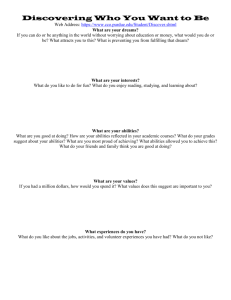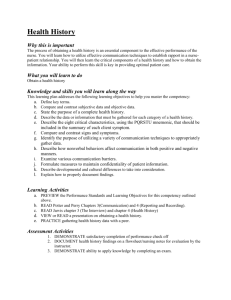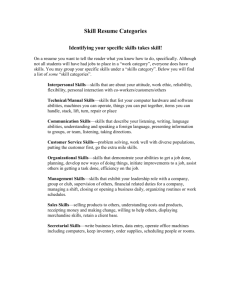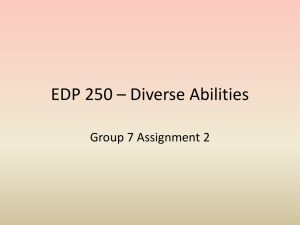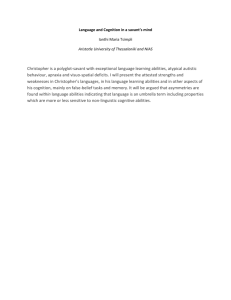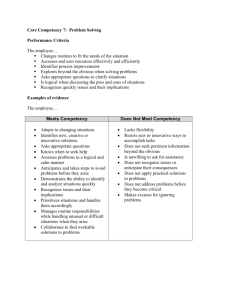Making a Case for Repeatability of Courses Consider these two
advertisement
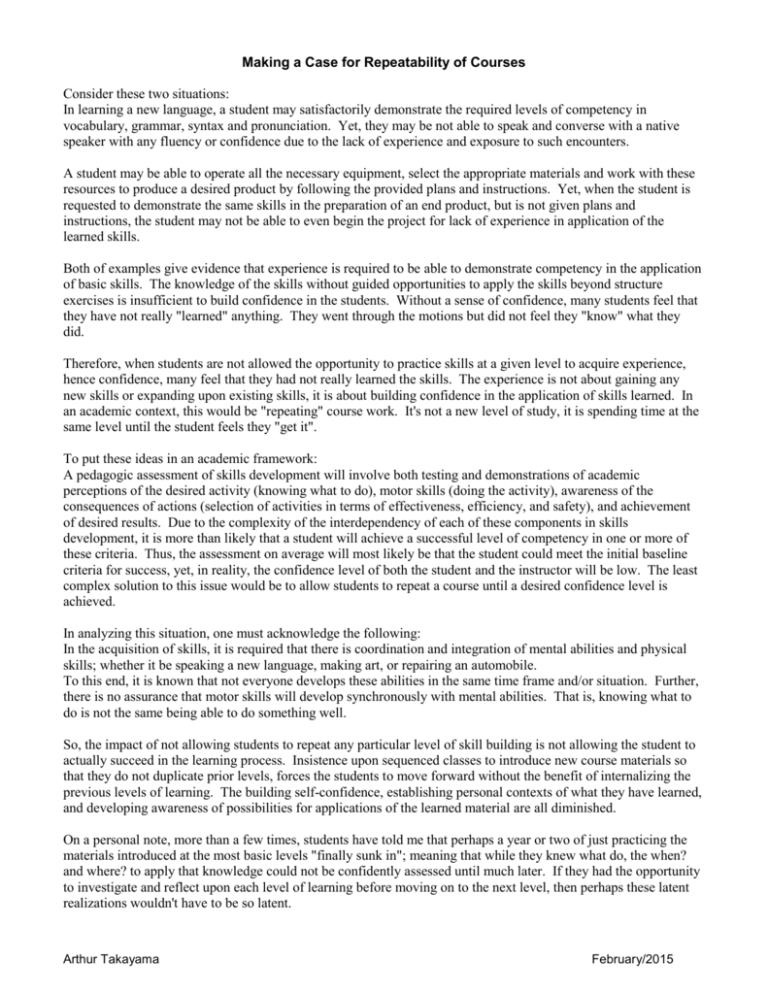
Making a Case for Repeatability of Courses Consider these two situations: In learning a new language, a student may satisfactorily demonstrate the required levels of competency in vocabulary, grammar, syntax and pronunciation. Yet, they may be not able to speak and converse with a native speaker with any fluency or confidence due to the lack of experience and exposure to such encounters. A student may be able to operate all the necessary equipment, select the appropriate materials and work with these resources to produce a desired product by following the provided plans and instructions. Yet, when the student is requested to demonstrate the same skills in the preparation of an end product, but is not given plans and instructions, the student may not be able to even begin the project for lack of experience in application of the learned skills. Both of examples give evidence that experience is required to be able to demonstrate competency in the application of basic skills. The knowledge of the skills without guided opportunities to apply the skills beyond structure exercises is insufficient to build confidence in the students. Without a sense of confidence, many students feel that they have not really "learned" anything. They went through the motions but did not feel they "know" what they did. Therefore, when students are not allowed the opportunity to practice skills at a given level to acquire experience, hence confidence, many feel that they had not really learned the skills. The experience is not about gaining any new skills or expanding upon existing skills, it is about building confidence in the application of skills learned. In an academic context, this would be "repeating" course work. It's not a new level of study, it is spending time at the same level until the student feels they "get it". To put these ideas in an academic framework: A pedagogic assessment of skills development will involve both testing and demonstrations of academic perceptions of the desired activity (knowing what to do), motor skills (doing the activity), awareness of the consequences of actions (selection of activities in terms of effectiveness, efficiency, and safety), and achievement of desired results. Due to the complexity of the interdependency of each of these components in skills development, it is more than likely that a student will achieve a successful level of competency in one or more of these criteria. Thus, the assessment on average will most likely be that the student could meet the initial baseline criteria for success, yet, in reality, the confidence level of both the student and the instructor will be low. The least complex solution to this issue would be to allow students to repeat a course until a desired confidence level is achieved. In analyzing this situation, one must acknowledge the following: In the acquisition of skills, it is required that there is coordination and integration of mental abilities and physical skills; whether it be speaking a new language, making art, or repairing an automobile. To this end, it is known that not everyone develops these abilities in the same time frame and/or situation. Further, there is no assurance that motor skills will develop synchronously with mental abilities. That is, knowing what to do is not the same being able to do something well. So, the impact of not allowing students to repeat any particular level of skill building is not allowing the student to actually succeed in the learning process. Insistence upon sequenced classes to introduce new course materials so that they do not duplicate prior levels, forces the students to move forward without the benefit of internalizing the previous levels of learning. The building self-confidence, establishing personal contexts of what they have learned, and developing awareness of possibilities for applications of the learned material are all diminished. On a personal note, more than a few times, students have told me that perhaps a year or two of just practicing the materials introduced at the most basic levels "finally sunk in"; meaning that while they knew what do, the when? and where? to apply that knowledge could not be confidently assessed until much later. If they had the opportunity to investigate and reflect upon each level of learning before moving on to the next level, then perhaps these latent realizations wouldn't have to be so latent. Arthur Takayama February/2015


